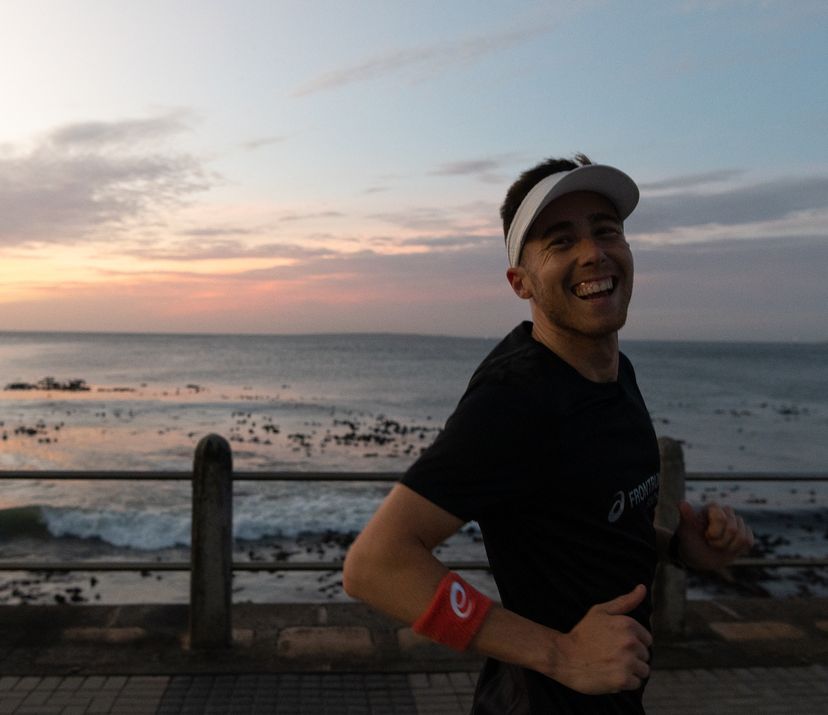It’s Comrades Marathon week and we have various Front Runners lining up for this iconic ultra.
Two of those are David Fick who has run four ultras but is running his first ever Comrades and Wietse van der Westhuizen, who is running his 43 Comrades (45th if you count the two virtual ones, which you should).
You might not have the Comrades in your plan any time soon, but we quizzed them for some tips on how to step up your training if you’re looking at increasing your race distance, whether that be from a 10km to a half-marathon, a half to a full marathon, or up to an ultra.
These are their words:
How long is your typical marathon training plan/programme (and into how many blocks do you break that)?
Wietse:
When I try to run a real ‘fast' Marathon I normally work on a four-month program. This includes:
1. Basic Weeks - 6 weeks
2. *High Milage Weeks - 8 weeks
3. **Taper week - 2 weeks.
4. ***Race week.
*High Mileage: Nowadays between 100km to 140km. If you are still young between 140km and 180km per week.
** Taper weeks: A drastic decline in milage including 1-2 rest days per week. This is when start feeling much stronger and you just have to be careful not to go into race mode. It’s also really important during this time to stay healthy and injury free.
***Race week:
Monday 10km
Tuesday 8km
Wednesday 4km
Thursday 4km
Friday and Saturday rest.
Sunday race day.
I still try to race one marathon before Comrades. In the past, it used to be sub 2h45 but nowadays the goal is sub 3h30. After that race day, I usually have a recovery week and then I start with a program specifically for building up towards Comrades.
David:
Marathons and Ultramarathons are quite different. For a marathon I would say between three-, max, four months breaking that into three different stages. You have your building stage, then you would have your peak stage and then you would have your, either maintenance stage and/or, then you taper period. It can be a 12-16 week programme. My best advice for that would be to find a running coach who specialises in the distance you want to do and get their guidance, it does help a lot.

What are the most crucial bits of advice you would give someone who is looking to step it up in distance (to an ultra etc)?
Wietse:
1. To step up towards an ultra marathon you have to have your base in place.
2. It is easy to finish any ultra marathon, but a different story to finish in a good time. It's not only about mileage; you have to start working on your mindset as well. You must sleep, dream and constantly run that perfect race in your mind.
3. Then try to stay injury free.
4. Be conservative in building up the km. You don't want to increase your mileage by more than 10% per week.
5. REST! It is perhaps the most important part of training for an ultra marathon. Don't try to catch up on training runs when you miss out, that additional rest day is always beneficial for a good result.
6. Look after your body. Due to high milage, speed and hill work sessions you have to drink lots of water and remember that A normal meal is not sufficient, you have to add additional vitamins, minerals and supplements to your diet.
David:
1. For me what makes a big difference is joining a running club, and finding a group to run together - it just makes things so much easier. Finding people who have the same goals as you hold you accountable.
2. Getting runner's strength programs in place is huge. You not only increase muscle strength, but it's also going to help you run faster and help to avoid injury. A lot of athletes unfortunately only deal with issues or injuries, when they have those injuries, they don't do preventative maintenance. So incorporating that into your marathon or ultramarathon programme will help prevent injuries and make you a stronger runner, rather than having to deal with injuries when they happen.
3. I like to incorporate double-run days into my training programme, it's just a great way of getting time on your legs and not putting too much stress doing single long runs. So typically during weekdays, it teaches your body to deal with different situations - some people run better in mornings or afternoons, so it teaches your body to run in a different environment and pushes mental strength.
4. Mental strength is a big one. Having a strong body is good, but having a strong mind is huge, especially with ultra distance because no matter what you train for, you're going to get to a period where your body’s going to want to give up and it's going to be mental so working on mental strength, whether that's meditation, or whether that's self-affirmation or motivation, just being in a strong mental mind frame is huge and believing in yourself and knowing that the typical saying that ‘’Pain is temporary, but failure lasts a lifetime.’’
5. Another one would be nutrition, so race day nutrition is very important, but also nutrition whilst you're training is super important. One thing would be eating foods that are very dense in nutrients, so finding nutrient-dense foods is crucial. I like to include that in my diet, just because my body needs that when I’m upping the mileage and when you are depleting all my resources. But doing things like, eating before your long runs and also replenishing your body after long runs, is huge in terms of recovery. Race day nutrition is very very important, one thing you need to do is train your gut so when you're training for an ultramarathon you need to do long runs and practice your race day nutrition, so whether that means taking the Gu’s that you gonna use for example at comrades and practising your nutrition plan during the longer runs, just to make sure your body doesn't have any surprises on the day.



